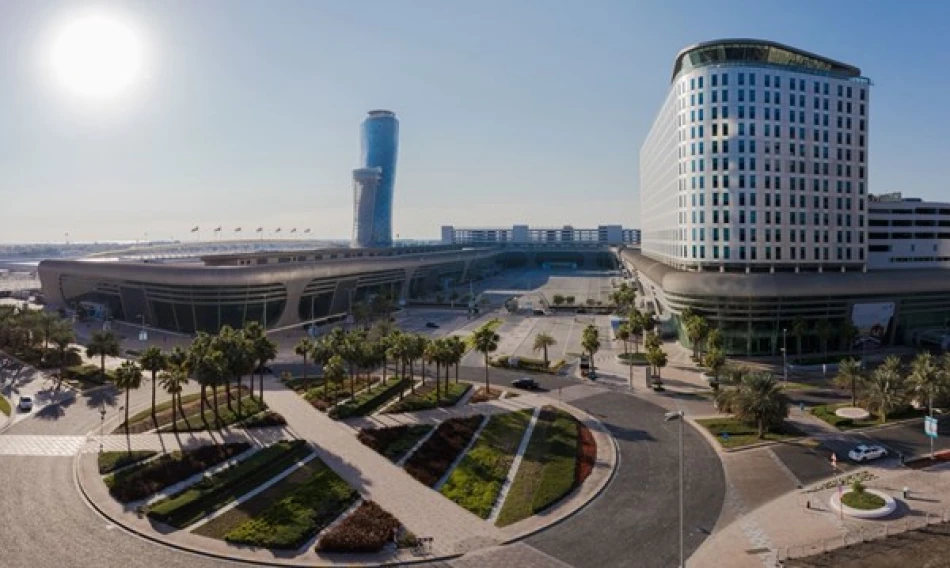
Discover UAE's Vibrant Events Calendar: Thrilling Exhibitions and Megaevents Await in Q4 2025.
UAE Emerges as Global MICE Capital with $8.5 Billion Economic Impact in Final Quarter Push
The United Arab Emirates is cementing its position as the world's premier destination for conferences and exhibitions, with a packed final quarter featuring major events across energy, aviation, technology, and finance sectors. With Dubai World Trade Centre alone hosting 100 events in 2024—a 32% year-on-year increase—and Abu Dhabi's ADNEC Group contributing a record $2.3 billion to the national economy, the UAE is transforming its MICE (Meetings, Incentives, Conferences, and Exhibitions) industry into a cornerstone of economic diversification.
Strategic Event Calendar Drives Economic Momentum
The UAE's fourth-quarter event lineup reads like a who's who of global industry gatherings. WETEX and Dubai Solar Show kicks off the season from September 30 to October 2, running parallel to the Global Green Economy Summit—a strategic pairing that reinforces the UAE's commitment to sustainable energy leadership following its COP28 presidency.
October brings two technology powerhouses: GITEX Global (October 13-17) at Dubai World Trade Centre and Expand North Star (October 12-15) at Dubai Harbour, both heavily focused on artificial intelligence and digital economy trends. This timing capitalizes on the global AI investment boom, positioning Dubai as a regional hub for tech innovation and venture capital.
Aviation and Construction Industries Take Center Stage
November amplifies the economic impact with the Dubai Airshow 2025 (November 17-21), one of the world's largest aerospace exhibitions. Given the Middle East's position as a global aviation crossroads and the region's airline expansion plans, this event typically generates billions in aircraft orders and partnerships.
The Big 5 construction exhibition (November 24-27) arrives at a crucial time, as the UAE prepares for massive infrastructure projects tied to its Vision 2071 and ongoing urban development initiatives.
Abu Dhabi's Financial Hub Ambitions
Abu Dhabi's event calendar strategically targets high-value sectors. ADIPEC 2025 (November 3-6) reinforces the capital's role as an energy sector command center, while Abu Dhabi Finance Week (December 8-11) positions the emirate as a regional financial hub competing with established centers like Singapore and Hong Kong.
The Abu Dhabi International Boat Show (November 20-23) may seem niche, but it targets ultra-high-net-worth individuals—a demographic crucial for the UAE's wealth management and luxury sectors.
Global MICE Industry Context
The UAE's aggressive MICE strategy comes as the global exhibitions industry shows remarkable resilience. According to the Global Association of the Exhibition Industry and Oxford Economics, worldwide exhibitions generated $398 billion in total economic impact in 2024, supporting 4.3 million jobs and contributing $233.1 billion to global GDP.
With 318 million visitors attending global exhibitions and 5 million exhibitors participating, the UAE is capturing an outsized share of this lucrative market through strategic venue investments and business-friendly policies.
Competitive Positioning Against Regional Rivals
The UAE's MICE dominance puts pressure on regional competitors. While Saudi Arabia invests heavily in NEOM and Riyadh's convention infrastructure, and Qatar leverages its World Cup venues, the UAE's decade-long head start and established ecosystem of hotels, logistics, and business services create significant competitive advantages.
Economic Multiplier Effects
Industry experts emphasize the sector's broader economic impact beyond direct spending. Ahmed Al-Khilafi from HPE Technologies notes that major events create "wide horizons for investment partnerships and knowledge exchange," while economic expert Emil Beshay highlights the industry's role in "opening vast prospects for investments and sustainable development."
The hotel sector particularly benefits from these mega-events, with STR Global repeatedly documenting occupancy and rate spikes during major exhibitions. This creates a virtuous cycle: successful events drive hotel investment, which increases capacity for larger future events.
Strategic Implications for Global Business
For multinational corporations, the UAE's MICE leadership offers strategic advantages. Companies can access Middle Eastern, African, and South Asian markets from a single location, while benefiting from the UAE's business-friendly regulations and world-class infrastructure.
The concentration of events also creates networking efficiencies—executives can attend multiple industry gatherings in a single trip, reducing travel costs and maximizing business development opportunities.
As the UAE continues expanding its convention infrastructure and refining its event management capabilities, it's not just competing for market share—it's redefining how global industries connect, collaborate, and conduct business in an increasingly multipolar world economy.
Most Viewed News

 Layla Al Mansoori
Layla Al Mansoori






